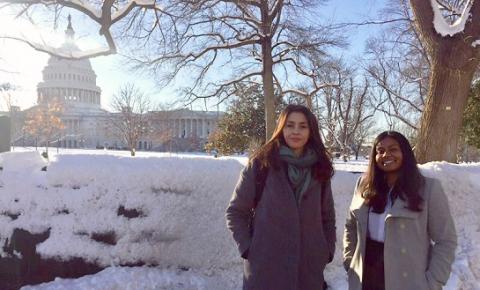
With plastic waste becoming a global pollution crisis, faculty and students of UCLA School of Law’s Frank G. Wells Environmental Law Clinic traveled to Washington, D.C., in January 2019 to brief Congress on legislation that could help reduce plastic pollution in oceans.